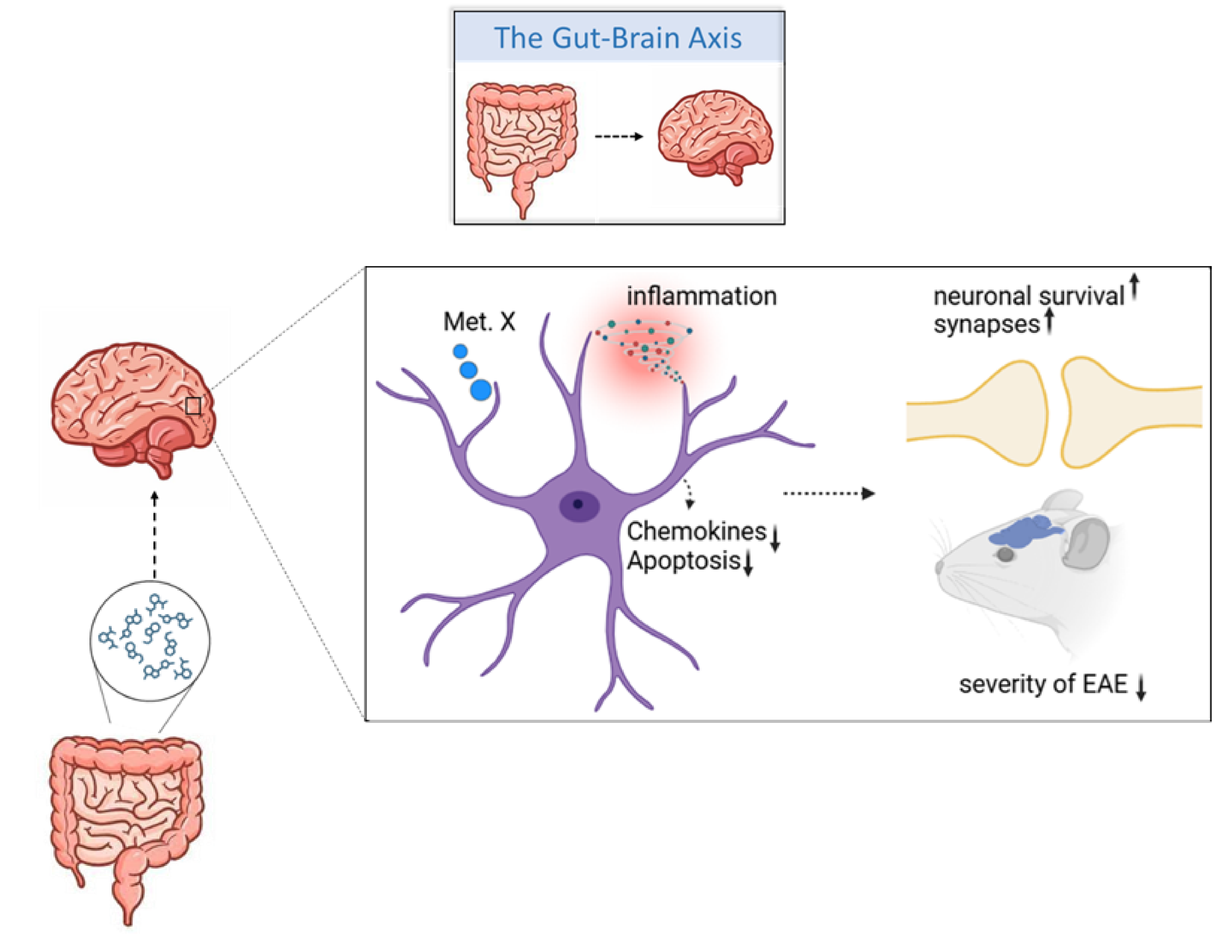
The human body does not exclusively consist of human cells. Instead, it provides an ecological niche to host an equally abundant population of microbial cells, collectively known as the microbiota. An increasing body of evidence points to the fact that these microbes influence the physiology of our organs, including the brain. And although they do not colonize the brain, they can still affect its function. How is it possible?
The key messengers facilitating such a dialogue are small, lipid-soluble metabolites released by the microbes into circulation. Through veins, they can reach the brain, cross the blood-brain barrier and interact with cells. If displaying pro-inflammatory properties, they can contribute to neurodegeneration. If anti-inflammatory, they can prevent it. Unfortunately, we currently know the identity of only a small subset of metabolites active in the brain.
In our preliminary research, we identified a gut-microbiota derived metabolite with profound anti-inflammatory properties in the context of glial cells.This metabolites has never before been described in the context of neurodegeneration and thus, constitutes a potentially untapped source of therapeutic interventions. In this project, we will take the first steps to explore this possibility in the context of multiple sclerosis.
Multiple sclerosis (MS) is a neurodegenerative disease with a staggering mortality rate of 47-75%. In addition, MS patients experience a dramatic reduction in the quality of life caused by physical disability, fatigue, and depression. The microbiota composition in multiple sclerosis is different than in healthy individuals and accumulating evidence points to an enormous potential behind the microbiome-based therapies for MS treatment.
Collectively, in this project we explore innovative approaches to modulate multiple sclerosis outcomes, which might pave the way to translating our research into the clinic.



